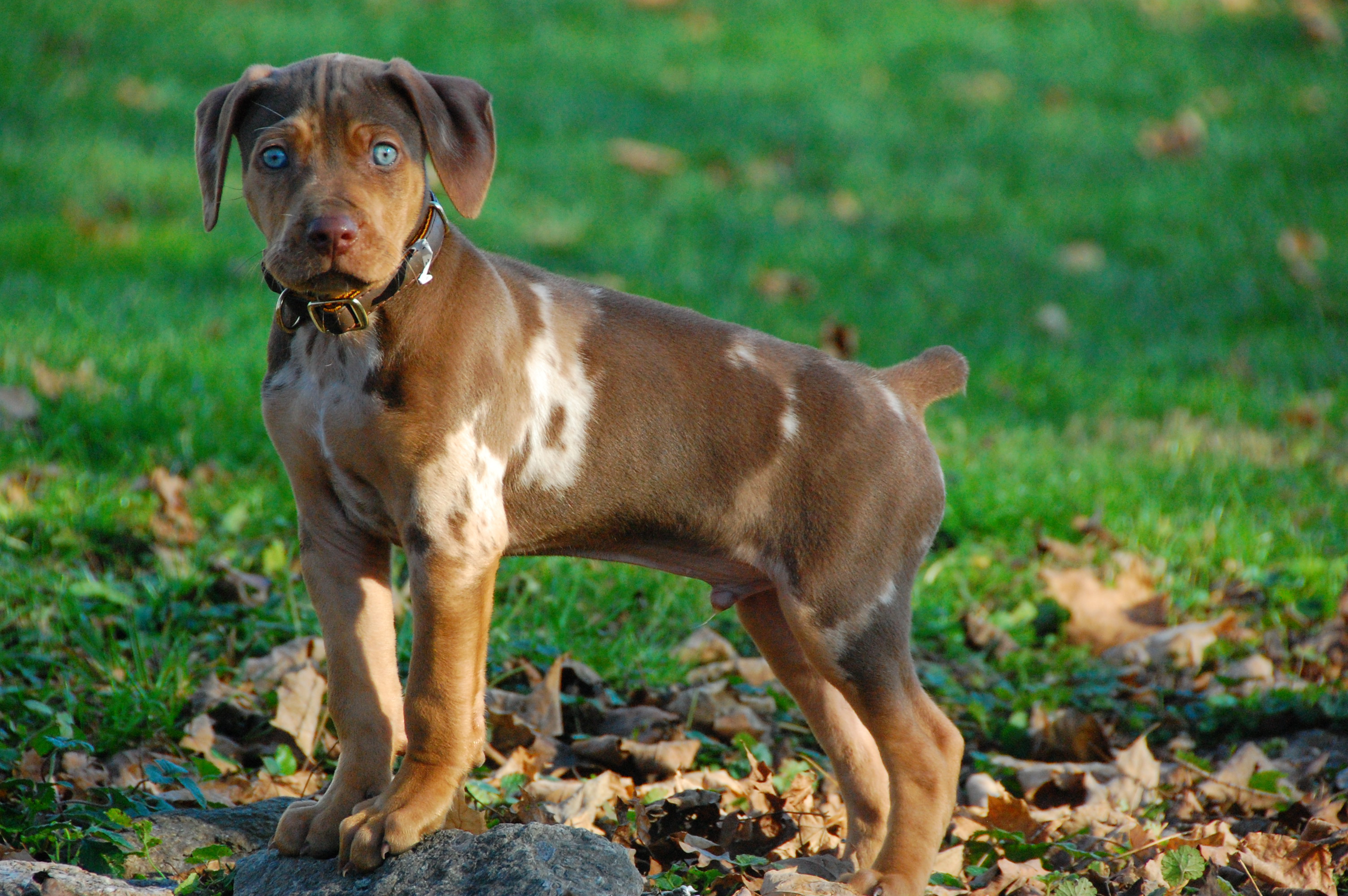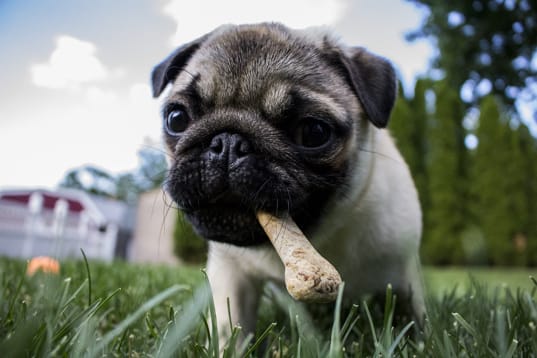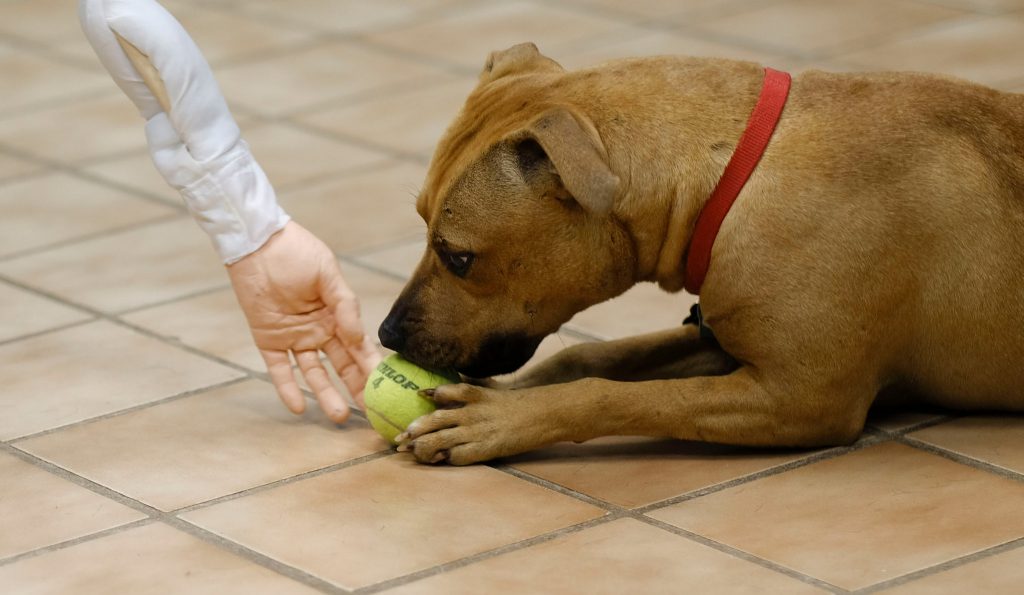
Resource Guarding in Dogs: Definition, Signs, and Solutions
Contents
Causes and Corrective Actions for Dog Guarding Behaviors
Dominance
An assertive puppy or young dog often growls at someone who reaches for a toy he holds or his food as a test for control, a behavior usually reinforced when the person backs away.
Lack of Socialization
A dog who previously ate or played in an isolated area away from people or other dogs often comes into a busy new home with resource guarding issues because he never learned that no one will steal food or toys.
DOMINANCE/LACK OF SOCIALIZATION Corrective Actions: If dealing with an adult dominant dog who you feel might resort to aggression over resources, seek immediate help from a professional trainer. With a non-aggressive puppy or young dog, play the “trade me” game daily, exchanging whatever item your puppy holds for something he values more, like giving up a toy for a treat, to form a pleasant association with dropping items or letting you take them. Establish your ownership of all toys by not always leaving them out for your puppy, put them away daily and alternate which toys you give your puppy to make it clear you decide when your puppy may play with each toy. Train obedience using positive methods that establish you as a strong but kindly leader. Feed your puppy frequently from your hand and drop morsels of food into his bowl, both to show you control food sources and to show him good things happen when you approach his food.

Fear/Instinct
In the wild, if a dog allows other dogs to take away his resources, he starves, an instinctual fear our domestic pets still carry with them.
FEAR/INSTINCT Corrective Actions: Resist advice to show dominance by taking away your dog’s bowl as he eats, this only increases your dog’s fear and anxiety about guarding food. Instead help your dog relax about people approaching as he eats by casually adding tasty morsels to his bowl during meals. Always take up the food bowl when your dog finishes eating to show you own the bowl. Feed your dog often from your hand and offer an occasional “surprise” treat from the bowl held in your hand. Obedience train using positive methods to establish yourself as the kindly leader who willingly shares assets. Train your dog to tolerate children around his food bowl, but still exercise common sense and prevent children from pushing his bowl around or picking it up — always supervise children around an eating dog.

Competition
A puppy or young dog living with another dog who pushes him away from his food bowl or steals toys on a regular basis often eventually retaliates against this intrusion by fighting. This usually occurs between same-sex dogs, but can happen between a male and a female. Owners also create competition over toys by playfully racing to pick up a toy before the dog grabs it.
COMPETITION Corrective Actions: Feed each dog in a separate, secure area to prevent competition over food. If you own two dogs, play fetch separately to avoid both dogs competing for the same toy. You own all toys, don’t race your dog for them, instead pick them up with a deliberate, controlled attitude.
